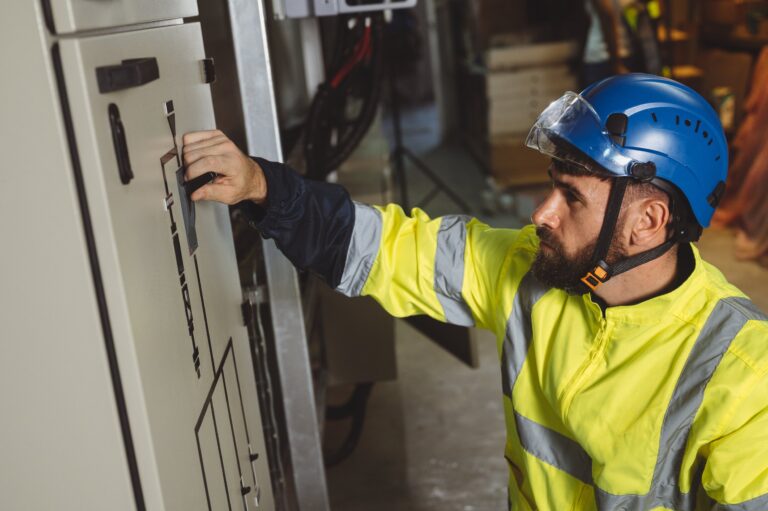Working as a freelance electrician can be immensely rewarding. It comes with new responsibilities and costs, but you’ll have greater flexibility, increased independence, and the opportunity to specialize in sought-after niche areas.
If you’re considering going it alone, check out our guide below for tips and best practices on making it a success.
What Does A Freelance Electrician’s Career Involve?
A freelance electrician works independently, offering electrical services to residential, commercial, or industrial clients without being tied to a single, private employer. Their work includes installing, maintaining, and repairing wiring, lighting, circuit breakers, and other electrical systems.
Freelancers handle their scheduling, pricing, marketing, and client relationships, giving them greater flexibility and control over their workload and income. They can charge more than salaried electricians without a cap on income or jobs by setting their prices. They may also find it easier to specialize in areas like solar and smart home systems and capitalize on tax deductions for tools and vehicle expenses.
Prerequisites and Qualifications
To operate legally, you must meet several educational and licensing requirements. You’ll need a high school diploma or GED and a completed technical training or apprenticeship program. These programs are usually achieved through a trade school, union, or employer-sponsored program, including four to five years of on-the-job training with classroom instruction.
Most states require the Journeyman Electrical Certification, which you can take after completing your apprenticeship. You may need the Master Electrician Certification for advanced employment roles before running your own business. States and local areas will have mandatory Local Electrician’s Licenses with different rules, exams, and renewal periods.
Remember that your state may require additional certified actions and permits for specialty jobs like low-voltage systems and solar installation. Regardless of the kind of jobs you work on, you’ll want to build a portfolio of the projects you’ve worked on that demonstrates your skills to potential clients.
Market Research and Planning
Freelance electricians need solid market research and planning to build a sustainable business. You should start by identifying local demand by researching local neighborhoods, industries, and construction trends to find areas with frequent electrical needs. Look online for your competitors’ pricing and services offered, and check their customer reviews to discover gaps in the market to fill.
Next, define your target market, whether it’s residential clients, small businesses, or property managers, before setting competitive but profitable pricing that accounts for your overhead costs. Create a budget that honestly outlines your startup costs and estimates monthly expenses and income.
Setting Up Your Freelance Business
To set up your freelance business, register it online and get insured. It will need a professional brand, with a unique name, logo, and website that attracts online searches. Investing in SEO will improve your business’s online visibility, potentially increasing the number of projects clients book.
A home office desk setup will help you manage your finances and projects. If you don’t already own them, you must invest in all the equipment you’ll need to carry out your work, including digital ammeters, wire strippers, and measuring tools. Keep updated with electrical codes and safety standards to comply with local regulations and avoid negative reviews.

